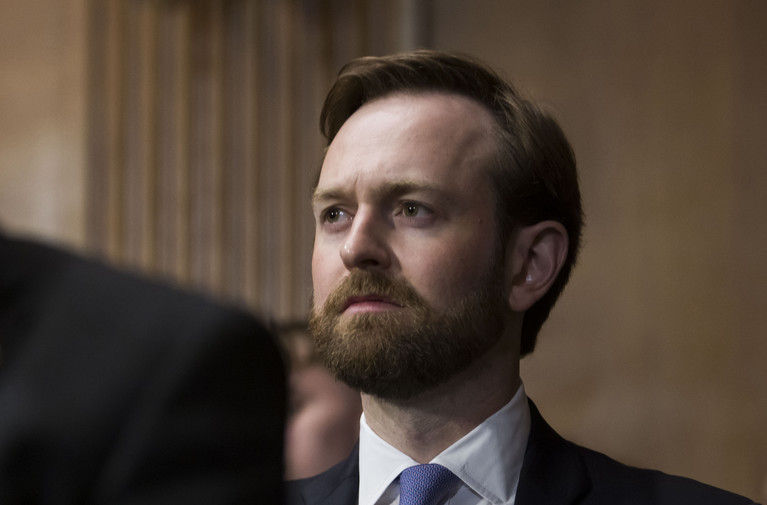Brussels and London Slam U.S. FTC Chair Over Digital Regulation Claims: “Get Your Facts Straight”
August 24, 2025
BRUSSELS, BELGIUM – A transatlantic rift has deepened as regulators in Brussels and London issued a sharp rebuke to U.S. Federal Trade Commission (FTC) Chair Andrew N. Ferguson for claiming that compliance with EU and U.K. digital regulations could violate U.S. law. In a rare joint statement, officials from both regions called on Ferguson to “get [his] facts straight,” escalating a dispute over global tech governance at a time of heightened U.S.-EU trade tensions.
Ferguson’s Provocative Claims
During a tech policy summit in Washington, D.C. on August 22, 2025, Ferguson suggested that Big Tech companies’ efforts to comply with the EU’s Digital Services Act (DSA) and U.K.’s Online Safety Act might conflict with U.S. consumer protection and data privacy laws. He described the DSA as potentially “a tax on American innovation” and expressed concerns that European regulations disproportionately target U.S. firms, risking breaches of FTC standards. “We will not hesitate to act if compliance with foreign laws undermines the rights of American consumers,” Ferguson warned, according to POLITICO.
His remarks, made less than eight months into his tenure as FTC Chair, reflect a growing U.S. skepticism about foreign regulatory frameworks. Posts on X have echoed similar sentiments, with some users alleging that the DSA enables “censorship” of American platforms, though these claims lack verified evidence and should be approached cautiously.
Unified EU-U.K. Response
The response from Brussels and London was swift and pointed. European Commission Executive Vice President Margrethe Vestager, who oversees digital policy, dismissed Ferguson’s claims as “misinformed.” “The DSA is a global standard for safer, fairer digital markets, applied uniformly to all companies, not just American ones,” Vestager said at a Brussels press briefing. “We urge Chair Ferguson to review the facts and engage in constructive dialogue rather than rhetoric.”
In London, the U.K.’s Office of Communications (Ofcom), tasked with enforcing the Online Safety Act, issued a statement reinforcing Vestager’s message. “Our regulations prioritize user safety and competition, with no bias against any country,” an Ofcom spokesperson said. “The FTC’s suggestion of legal conflicts is baseless and risks undermining transatlantic cooperation.”
The joint pushback highlights a rare alignment between the EU and U.K., post-Brexit, on digital policy, as both seek to assert their regulatory frameworks amid global scrutiny.
Context of the Dispute
The EU’s DSA, implemented to regulate online platforms and address issues like misinformation and illegal content, has been a flashpoint in U.S.-EU relations. The FTC, under previous Chair Lina M. Khan, had fostered cooperation through the U.S.-EU Joint Technology Competition Policy Dialogue (TCPD), emphasizing shared goals in tech regulation. Ferguson’s remarks, however, signal a shift toward confrontation, aligning with broader U.S. concerns about European overreach, as noted in a recent U.S. House Judiciary Committee report warning of potential First Amendment conflicts.
The U.K.’s Online Safety Act, similarly, imposes strict content moderation requirements, raising questions about compliance for global tech firms. Both regulations require companies like Meta, Google, and Amazon to adapt their operations, prompting U.S. regulators to scrutinize potential impacts on American users.
Trade Tensions and Industry Impact
The dispute coincides with strained U.S.-EU trade relations, exacerbated by President Donald Trump’s April 2025 imposition of 20% tariffs on EU imports. European Commission President Ursula von der Leyen has warned of retaliatory measures, estimating that such tariffs could cost EU consumers €1.1 trillion annually. The FTC’s stance risks further complicating negotiations within the U.S.-EU Trade and Technology Council (TTC), where digital policy alignment is a key focus.
For tech companies, the conflicting regulatory signals create a compliance nightmare. Adhering to EU and U.K. requirements, such as enhanced data transparency or content moderation, could expose firms to FTC scrutiny if perceived as compromising U.S. consumer protections. Legal experts warn that this could lead to costly legal battles or operational changes, with one Stanford Law professor noting, “Big Tech is stuck between a rock and a hard place.”
Public and Expert Reactions
Reactions on X reflect a polarized debate, with some users supporting Ferguson’s defense of U.S. sovereignty and others accusing him of stoking unnecessary conflict. “The EU’s trying to control our tech giants. Good for Ferguson for calling it out,” one post read, while another countered, “The DSA protects users globally—why is the FTC picking a fight?” These sentiments, while vocal, lack authoritative weight and highlight the need for factual clarity.
Policy analysts, including those at the Center for Strategic and International Studies, have called for de-escalation through renewed TCPD talks. They argue that mischaracterizations, like Ferguson’s, risk undermining years of progress in transatlantic tech cooperation.
Looking Ahead
The FTC has not formally responded to the EU-U.K. criticism, but Ferguson is expected to address the issue at the next TCPD meeting in September 2025. Brussels has extended an invitation for direct talks, with Vestager emphasizing, “We’re open to collaboration, but it starts with mutual understanding.” The outcome of this dispute could shape not only U.S.-EU tech relations but also the global framework for digital regulation, as other nations watch closely.
For now, the call for Ferguson to “get his facts straight” underscores a critical moment in transatlantic relations, with the stakes high for regulators, tech giants, and consumers alike.
Sources: POLITICO, Reuters, Law360, European Commission Press Releases
